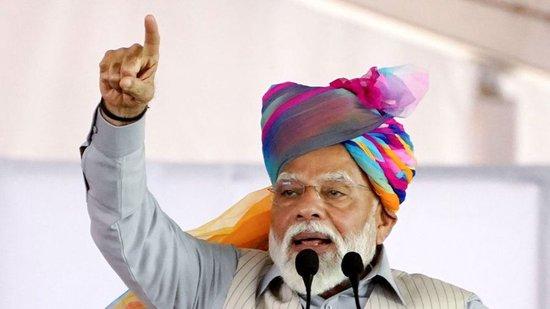
On August 1st, US President Donald Trump stated that he had heard that India was no longer purchasing oil from Russia, “a good step”.
However, this statement was quickly contradicted hours later.
According to a report by the “Reference News”, sources within the Indian government confirmed that Indian refineries continue to purchase Russian crude oil, which is determined by economic factors such as price and transportation.
On July 30th, Trump announced that starting from August 1st, the United States would impose a 25% tariff on goods from India and would also charge additional punitive fees for “improper behavior”.
Analysts believe that the “improper behavior” refers to India’s import of crude oil from Russia. The US Secretary of State, Rex Tillerson, recently referred to Russian oil as a “catalyst” for US-India relations.
After Trump issued his tariff threat, trade experts confirmed that at least two ships carrying Russian crude oil were redirected to other destinations. There are also rumors that India has asked its refineries to develop alternative procurement plans, with Indian state refineries having stopped purchasing Russian oil last week…
On August 1st, Trump said, “I know India will no longer be purchasing oil from Russia. I heard this from someone. I don’t know if it’s right or wrong, but it’s a good step. Let’s see what happens.”
However, just hours after Trump made these remarks, an Indian government source clarified: “Refineries in India continue to purchase oil from Russian suppliers. Their supply decisions are influenced by factors such as price, crude grade, inventory, logistics, and other economic considerations.”
Further reports indicate that two senior Indian government officials stated that India’s policy remains unchanged. One official mentioned that the government “has not given any directives to oil companies to reduce their imports from Russia.”
At a press conference held on August 1st, Indian Foreign Ministry spokesperson Randeep Jaiswal refused to directly respond to Trump’s threats.
He stated that his policy towards Russia would not change.
Some officials and analysts have suggested that Trump’s interest in India purchasing Russian oil could be a negotiation tactic.
In response to Trump’s tariffs, India has responded by taking all necessary measures to safeguard its national interests.
Several insiders from India revealed that, currently, India has ruled out immediate retaliatory actions and is attempting to soothe the White House, considering increasing imports from the United States.
However, it was revealed that India does not have a defense procurement plan and has informed the US that it is uninterested in purchasing F-35 stealth fighter jets. At the same time, the Indian Ministry of External Affairs also stated on Friday that there had been no formal discussions regarding the purchase of fighters with the US.
Indian insiders mentioned that New Delhi officials are shocked and disappointed by Trump’s tariff threats. They also stated that the Indian government still hopes to ensure smooth bilateral trade negotiations and explore methods to increase purchases from the US.
It is reported that India is considering increasing imports of natural gas, communication equipment, and gold from the United States, aiming to reduce its current trade deficit with the US over the next three to four years.
Market analysts say that the initial progress in US-India negotiations seems quite rapid, but subsequent issues have led to “blockages.”
The Trump administration hopes for an agreement that will ensure greater market access for American agricultural products, dairy products, and poultry products in India. However, India firmly opposes this, as the farming community is a key vote bank under Modi’s government.
India also hopes to ensure continued market access for labor-intensive products such as textiles, footwear, and auto parts, which are among the concerns.
In response to Trump’s tariff threat in April, India initially planned to reach a “mini-protocol” before August 1st, but has now fallen into a stalemate. The US and India are also in consultation about a more comprehensive trade agreement, aiming to announce the first batch of results around October this year, during which Trump also plans to visit India for the “Quad Security Dialogue” summit.